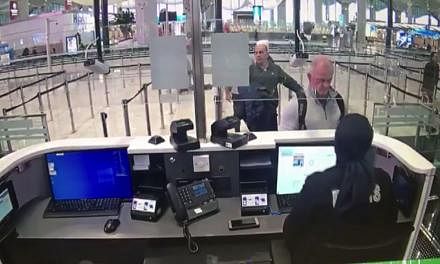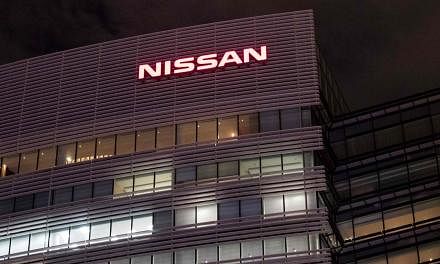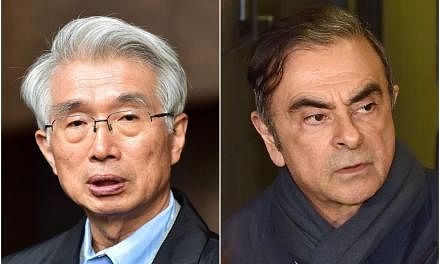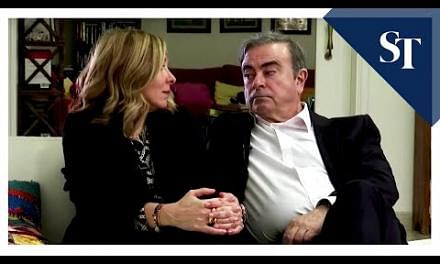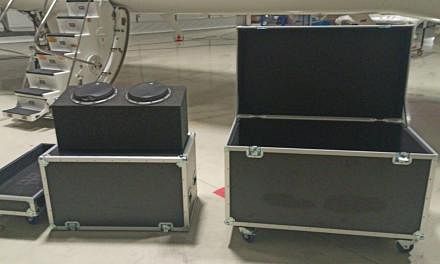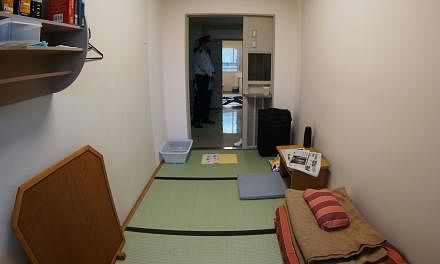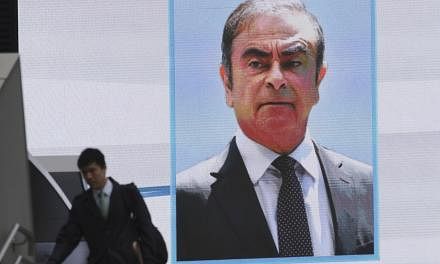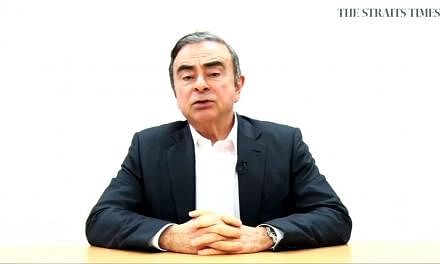Carlos Ghosn's key defenders
Former Nissan chairman Carlos Ghosn, who is facing charges of financial misconduct, is out on bail after 108 days in detention. The Sunday Times looks at two key players in the new all-star defence team hired by the beleaguered car titan to clear his name.
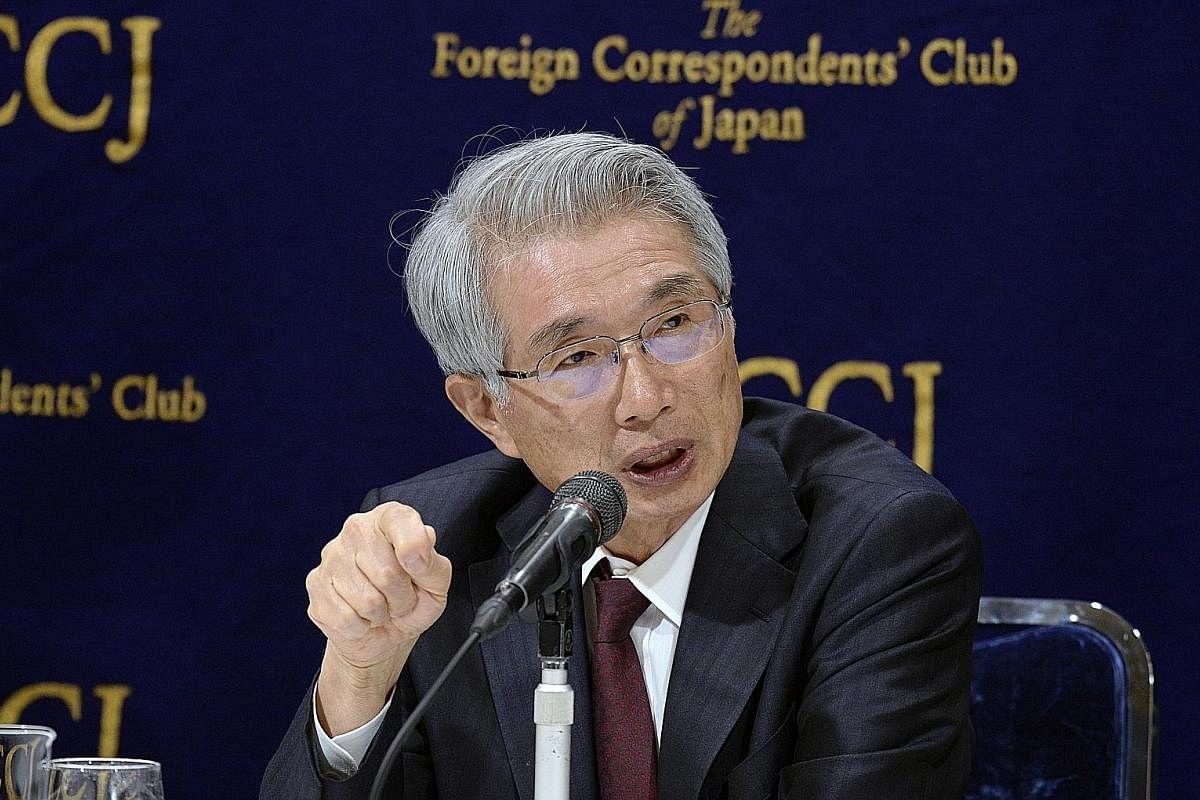
Junichiro Hironaka: Alleges boardroom intrigue, says client a victim of conspiracy
The face of once-feted Nissan chief Carlos Ghosn's new legal team is Mr Junichiro Hironaka, who has been billed as the "Razor" for winning a string of high-profile acquittals in Japan, where the conviction rate is 99.9 per cent.
Ghosn is relying on Mr Hironaka's expertise in defending white-collar criminal suspects to poke holes in the prosecution's case, as he fights three charges of financial misconduct.
The sacked Nissan chairman turned 65 yesterday under a storm cloud of allegations surrounding undeclared income of nine billion yen (S$110 million) over eight years, and aggravated breach of trust in a complex scheme to transfer 1.85 billion yen in personal losses to the company in 2008.
Since his arrest last Nov 19, Ghosn has also had to contend with a drip-feed of leaks to the Japanese media that appears intended to tarnish his name in the court of public opinion.
Mr Hironaka, 73, was hired last month after a shake-up of Ghosn's legal team. The "Razor" replaces Mr Motonari Otsuru, 63, a public prosecutor turned defence lawyer once known as the "Breaker" for his skill in extracting confessions from criminal suspects.
Mr Hironaka told reporters after his appointment that he believed there was boardroom intrigue involved in the "peculiar" circumstances behind Ghosn's ouster, given that the allegations were to do with "internal processes that should have been reviewed within the company".
He also questioned why Nissan, which Ghosn rescued from the brink of collapse after he joined in 1999, went straight to criminal prosecutors. He warned that the implications of the case could reverberate and cause major damage to the reputation of Japan Inc worldwide.
Mr Hironaka also said he would scrutinise the links between Nissan and the Ministry of Economy, Trade and Industry, amid talk that Ghosn was forced out to thwart a hostile takeover by French carmaker Renault.
"This is not something that should have gone to prosecutors. Right now, Nissan and prosecutors are well ahead, and we need to catch up," he said.
Mr Hironaka graduated from the prestigious University of Tokyo in 1968, and was called to the Bar two years later, according to his profile on the website of his eponymous law office, which he founded in 2004. He has seven lawyers working with him, including his daughter Eri.
The hotshot lawyer had, in 2012, cleared the name of opposition politician Ichiro Ozawa, who was accused of misreporting political funds. This case pitted Mr Hironaka against Mr Otsuru.
In 2010, he successfully defended Ms Atsuko Muraki, one of a few women at the pinnacle of Japan's civil service at the time. Her defence team included judicial reform expert Hiroshi Kawatsu, whom Ghosn has also tapped for his legal team.
Ms Muraki was charged with falsely certifying an organisation as a non-profit group working for the disabled, so that it could benefit from cheaper postage rates.
But it was proven that it was her subordinate who was behind the fraud, and that the lead prosecutor, Mr Tsunehiko Maeda, had tampered with the evidence. He served 18 months in jail.
Ms Muraki was compensated 37.7 million yen by the government and later promoted to Vice-Minister of Health, Labour and Welfare.
Mr Hironaka also fought for 318 Fukushima residents who were forced to flee in the wake of the triple nuclear meltdown at the Fukushima No. 1 Power Plant on March 11, 2011.
Its operator, Tokyo Electric Power Co, was ordered last year to pay each plaintiff 3.3 million yen.
Mr Hironaka told a news conference last week that he was looking forward to defending Ghosn.
Alluding to his moniker, he said: "I am now 73 years old, but I want to test how sharp my razor still is."
Takashi Takano: The mastermind who hatched bail plan
TOKYO • The lethal mastery that defence attorney Takashi Takano has honed in his craft manifests in his law firm's logo - a blue eagle with the slogan "Best Defence".
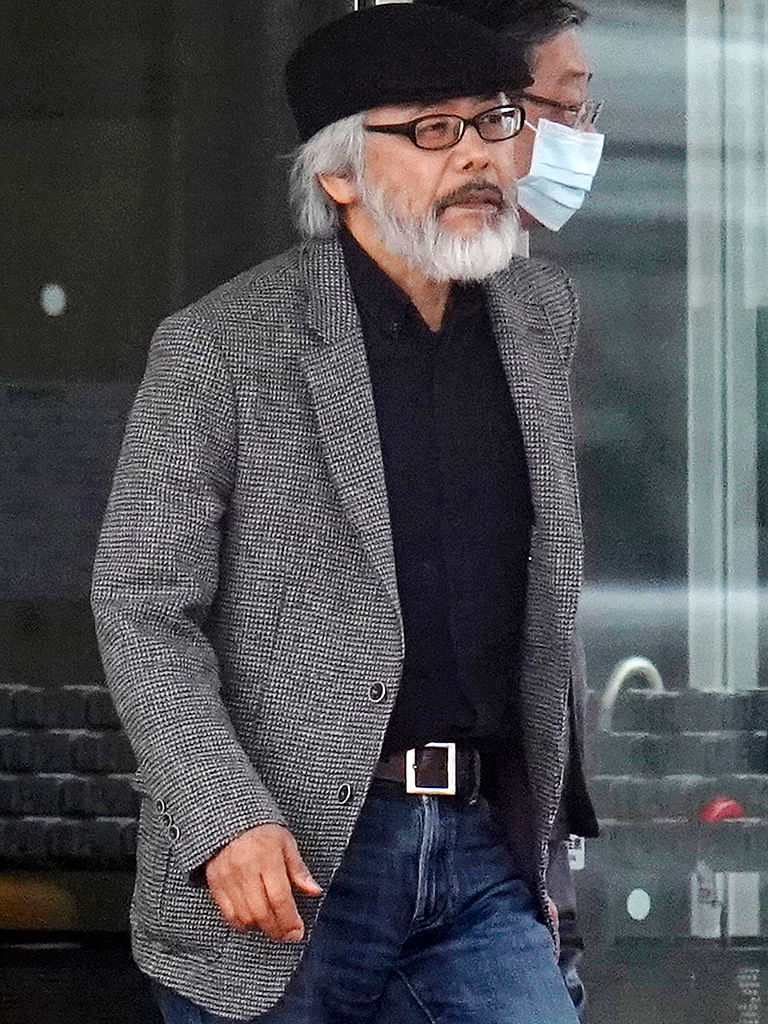
Considered to be one of Japan's top three criminal trial lawyers, the 62-year-old has represented high-profile criminals like former Aum Shinrikyo member Katsuya Takahashi, who is serving a life sentence for, among other things, his role in the doomsday cult's 1995 sarin gas attack in Tokyo.
Mr Takano is now in the legal team for former Nissan chief Carlos Ghosn, masterminding his release on bail last Wednesday after two failed attempts and 108 days in custody. The bail comes with stifling restrictions - including camera surveillance of Ghosn's court-designated residence and a ban on Internet use - to blunt the threat that prosecutors say he poses.
Yet his release is incredibly rare in Japan whose "hostage justice system" means suspects who do not confess are typically held without bail until they go to trial.
This system has long been opposed by Mr Takano, who in 2013 founded the Tokyo Academy of Trial Advocacy to train criminal defence lawyers and push for the modernisation of a system that has long been heavily reliant on oral and forced confessions.
He is known in Japanese legal circles as a non-conformist whose novel ideas are evident in his disguising of Ghosn as a construction worker with overalls, cap and face mask to hoodwink waiting reporters last Wednesday. He later apologised for tarnishing Ghosn's reputation with the "amateur plan", but said it was necessary to ensure he could properly rebuild his life.
Mr Takano graduated from Waseda University in 1979 and obtained a master degree in law from SMU Dedman School of Law in Texas in 1987. He taught law at Waseda from 2004 before starting his law practice in 2009.
His proteges, dubbed the "Takano Children", include Mr Seihou Chou, 38, who wrote in a blog post that Ghosn's bail approval should go beyond being an endorsement of the "Takano Method". Instead, Mr Chou said, it should catalyse change such that defendants who assert their innocence can be granted bail as a matter of course.
Join ST's Telegram channel and get the latest breaking news delivered to you.
A version of this article appeared in the print edition of The Sunday Times on March 10, 2019, with the headline Carlos Ghosn's key defenders. Subscribe
